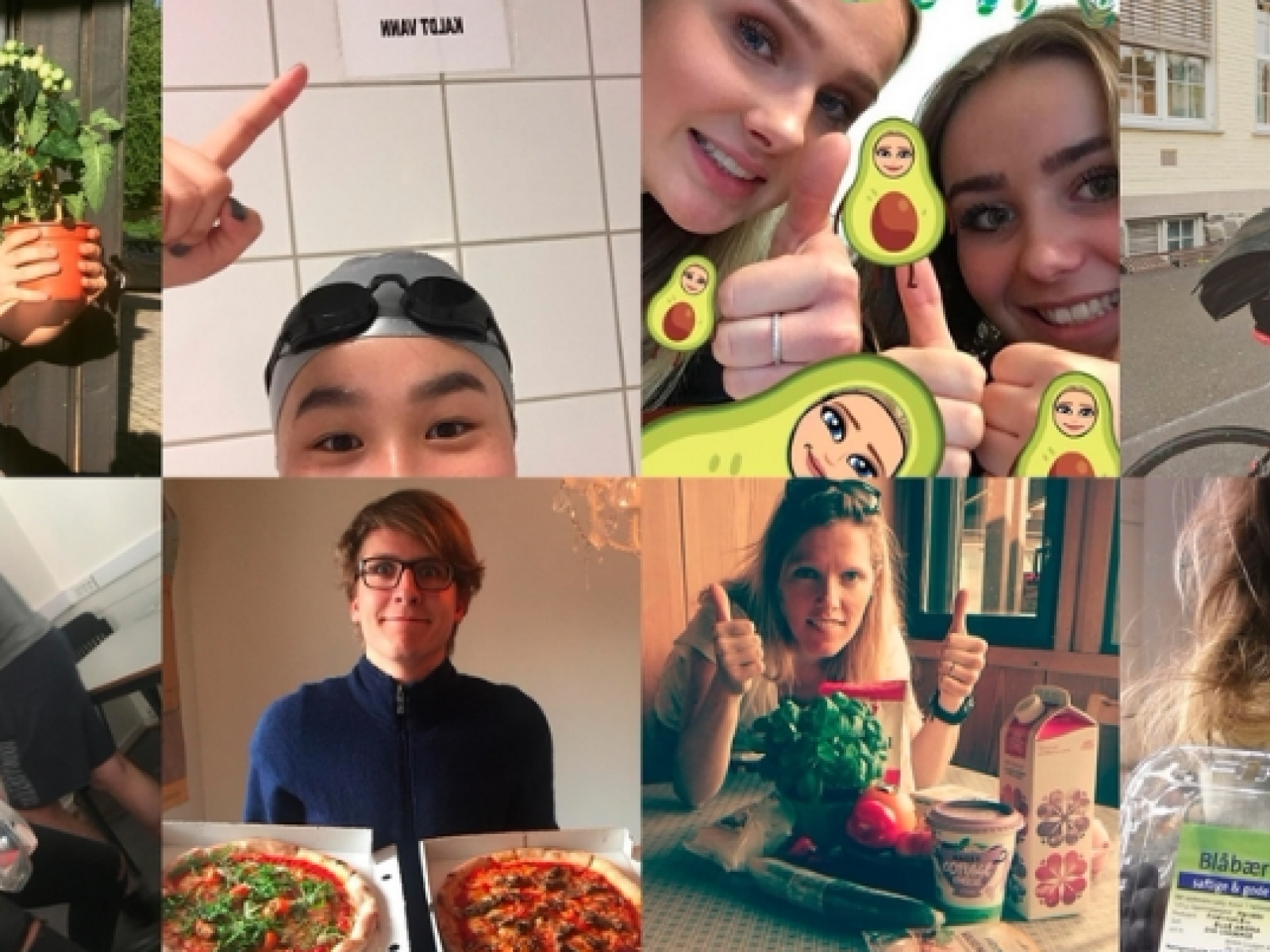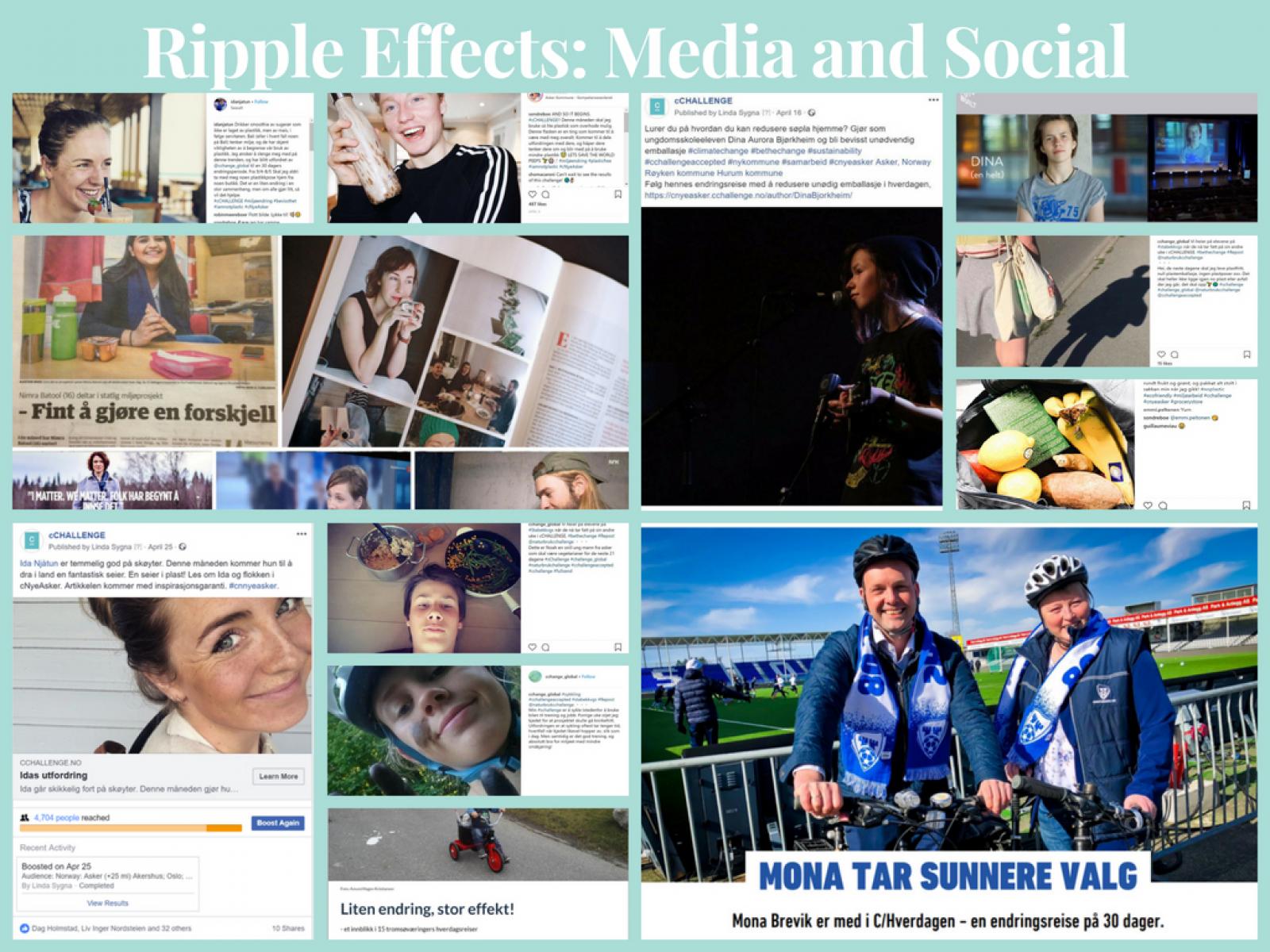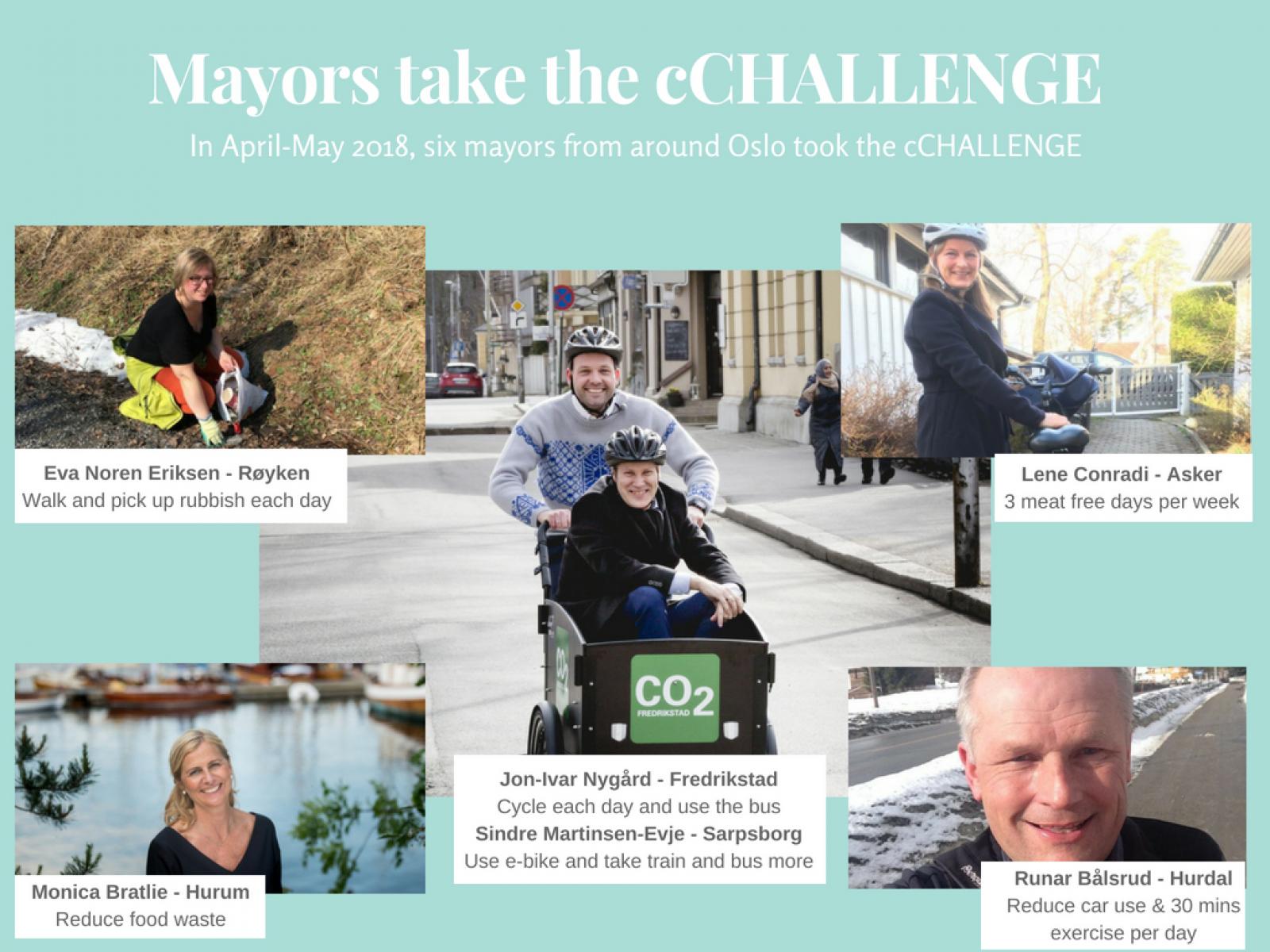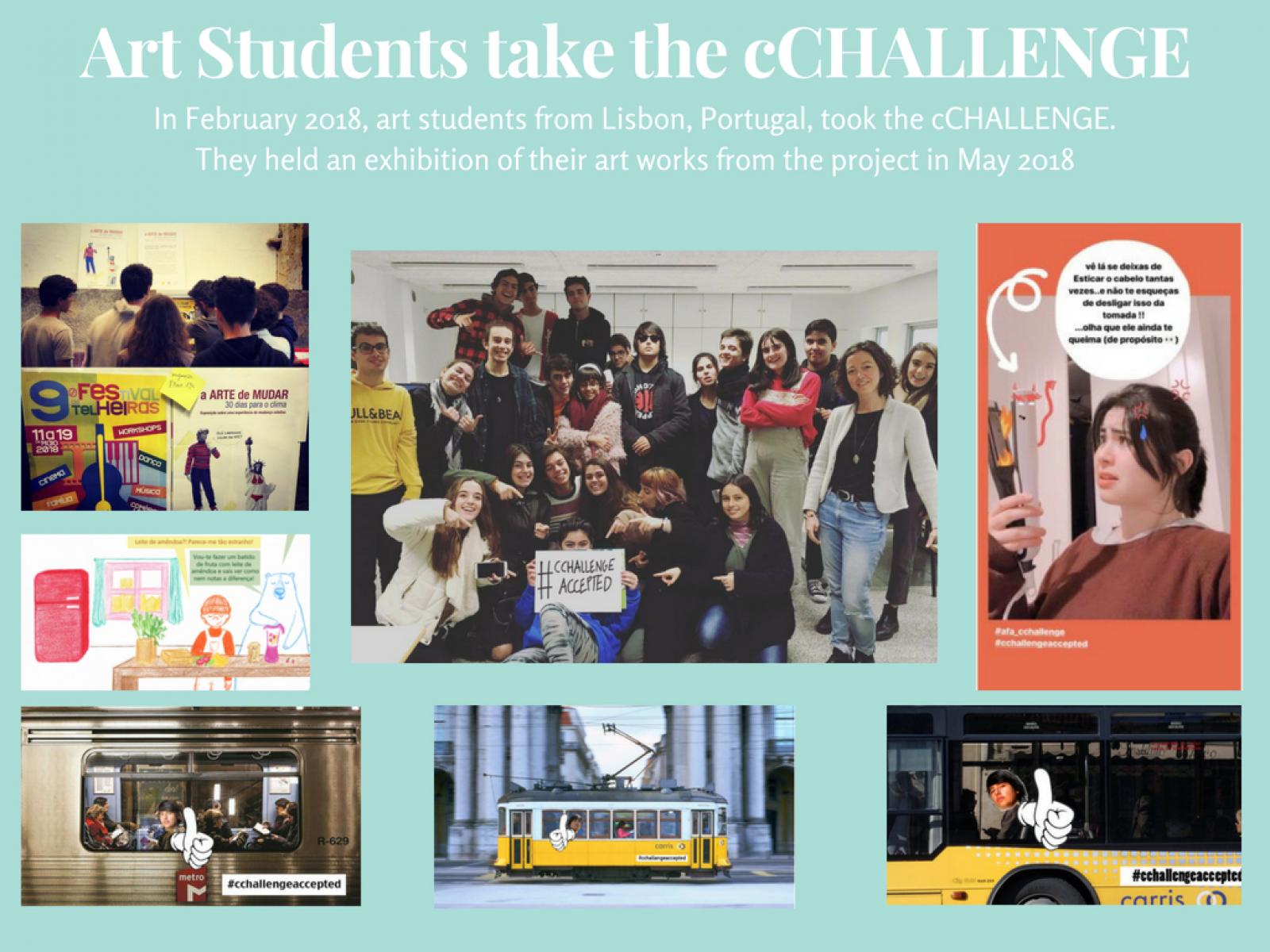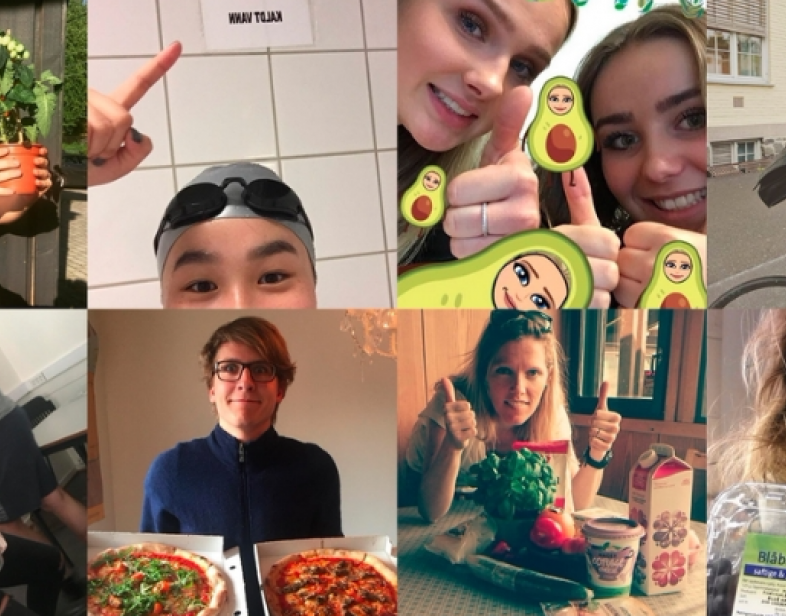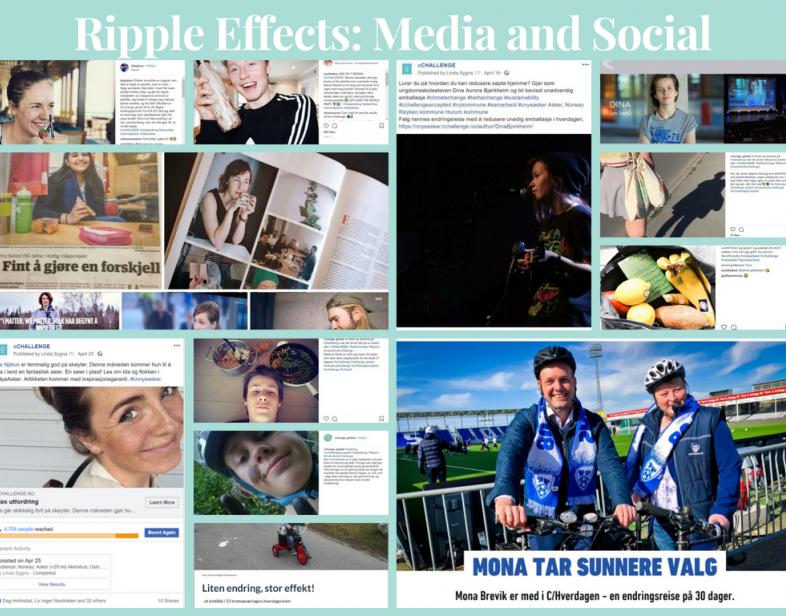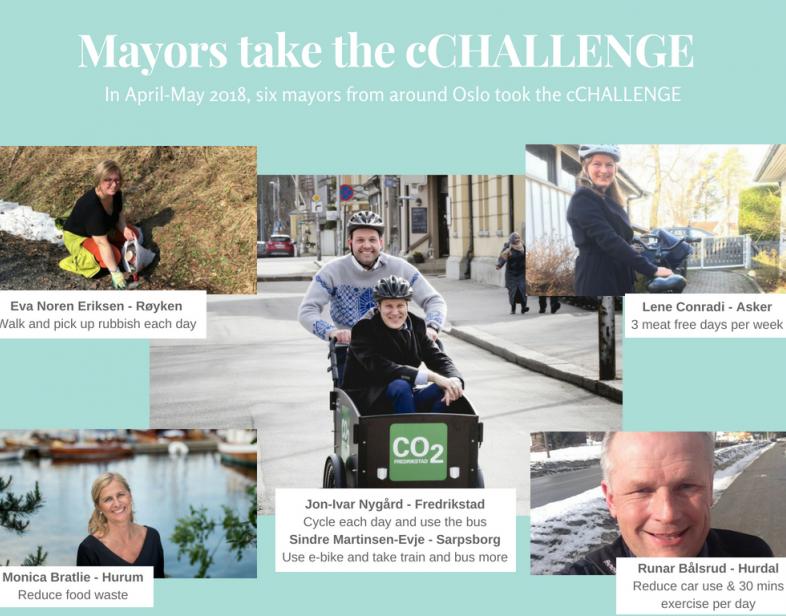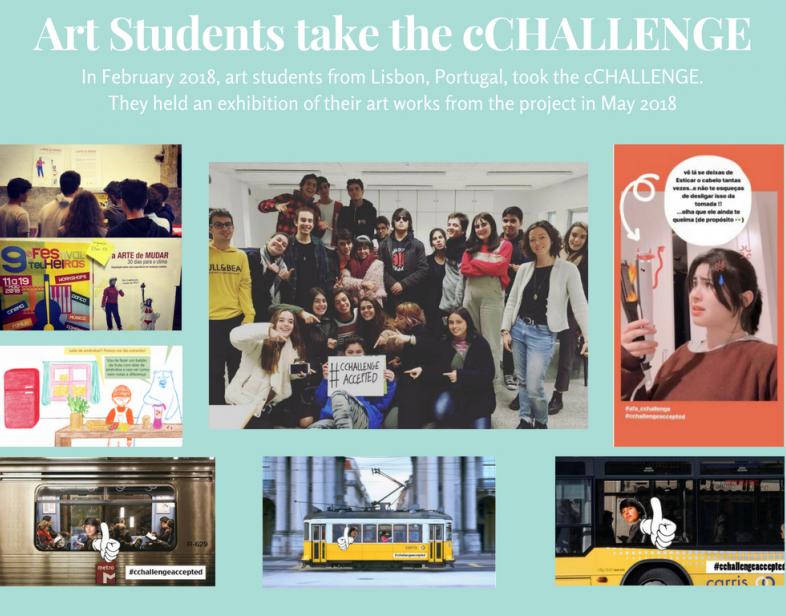An Overview Of Our Solution
Climate change is considered by many to be the challenge to humanity. How do we transform ourselves, our communities, and our systems at the rate and scale called for? Developed by world-leading sustainability transformations expert, Prof. Karen O’Brien, cCHALLENGE is a 30-day experiment with change. It is a fun tool for organizations to trigger transformations to sustainability by engaging the most powerful solution to climate change that exists – people.
We have delivered ten cCHALLENGEs in 2018 so far, resulting in inspiring habit change and more importantly big ripple effects on family and friends around participants.
We are ready to scale up and position the cCHALLENGE for worldwide spread. Our long-term objective is to make it available for organizations and millions of people around the world to help catalyze transformations to a thriving planet.
- Population Impacted: Ca. 1000 participants, with thousands influenced
- Continent: Europe
Context Analysis
A growing awareness of the urgent need to respond to climate change leaves many individuals and organizations with an unfulfilled desire to play a greater role. Many current approaches focus on technical/practical solutions or communication campaigns, often emphasizing individual behavioral change e.g. reducing personal emissions by bicycling or eating less meat. But these approaches may create resistance rather than engagement, as they directly confront people’s behaviors or overload them with information.
Many current approaches fail to really get to the core of how sustainable change happens.
We are at the forefront in research on transformative change. Decades of research suggests that to create long-lasting behavior change, there's a need to engage people more deeply, connecting with their values, beliefs and emotions and linking these to changes in norms, rules, and institutions that support and sustain new behaviors.
Describe the technical solution you wanted the target audience to adopt
Drawing on decades of research, cCHALLENGE is a 30-day experiment with change created by University of Oslo Prof., Karen O'Brien - a world-leading expert and lead IPCC author on sustainability transformations. It was designed to provide participants with experiential learning about change processes and to trigger awareness around individual, collective and systems change.
cCHALLENGE participants choose and carry out one environmentally beneficial change over 30 days. They set up a profile on our digital platform and share experiences, insights, and reflections. During the 30 days they receive the Transformative Program (research-based learning on transformation), as well as personal climate coaching (ie. comments on their posts). We also include workshops, reports on triggering change and comms and PR.
cCHALLENGE is a powerful and fun solution for businesses, municipalities, educators, and NGOs to engage their employees, customers, citizens, members, or students with climate change.
Type of intervention
Describe your behavioral intervention
Research suggests the way to trigger rapid, large-scale change involves changing how we approach change itself. When people see something from a new perspective, problems often become clearer and solutions more visible.
The focus on a 30-day change helps people realize their own role and the roles of cultural norms, policies, institutions and systems in perpetuating or transforming the problems we face. This realization is empowering, and helps people see new ways they can be part of the solution - awareness is critical for triggering large-scale transformations to sustainability (O’Brien, Hochachka and Gram-Hanssen, 2018 (in publication)).
cCHALLENGE:
• Gives people the freedom to choose, experiment and make mistakes
• Changes habits. In recent rounds ca. 70% of people said they changed their habits after the cCHALLENGE
• Inspires, engages and activates people by transforming climate change from an overwhelming global problem into an issue they can contribute to
• Activates a sense of agency. People see that they matter far beyond their CO2 footprints
• Creates ripple effects. In recent rounds ca. 85-90% of people felt the project had ripple effects by triggering conversations, comments and interest from people around them
Recent studies show that transformation often occurs when a critical mass of people shift their viewpoint or perspective. (Xie et al. 2011., Castilla-Rho et al., 2017., Centola et al. 2018). cCHALLENGE triggers such shifts.
As needed, please explain the type of intervention in more detail
In a soon-to-be-published article, O’Brien, Hochachka & Gram-Hanssen (2018) report that cCHALLENGE:
- makes participants aware of their assumptions about change
- creates sub-cultures to try out new practices and move them from individual to collective changes
- gives confidence to engage in critical dialogue and enhances agency and empowerment
- helps participants recognize their potential to enact change through their networks and relations and the institutions they are part of
The shift in awareness resulting from the cCHALLENGE replaces a belief that we are subjects to be changed by climate policies and behavioral interventions, with a sense of empowerment and a realization that the culture and the systems we live in, can be changed.
Describe your implementation
Around 1000 people have taken the cCHALLENGE since it was first created by Prof. O’Brien in 2012 for students at Oslo University. After observing the impact it had on their lives and their family and friends, it was scaled up.
In 2015, funding was received to run four public rounds. These were highly successful and attracted significant attention from the media and potential project leaders. In 2017, further funding helped support the creation of the current digital platform. So far in 2018 numerous cCHALLENGEs have been run using the web-based platform, with around 500 participants from all walks of life – including mayors, sports stars, and students.
Many articles, short films, and keynote talks at conferences have emerged from the rounds, drawing attention and creating interest and excitement. The feedback from participants & customers has been very positive.
We are now ready to scale up the cCHALLENGE and position it for worldwide spread. Our long-term objective is to make CHALLENGE available for organizations and millions of people around the world and to catalyze transformations to sustainability.
Key success / enabling factors include:
• Experiential learning – cCHALLENGE is a practical and unforgettable hands-on experience
• We have strong links with world-leading sustainability transformations researchers and cutting-edge research
• We target organizations (rather than individuals) who have climate goals, resources and budgets and are committed to responding to climate change
• It is critical that the project leader within the organization is committed to co-creating the cCHALLENGE with us
Common obstacles to behavior change relate to old habits, cultural norms, as well as structural obstacles. Those and other occurring obstacles are anticipated and addressed within the Transformative Program. Additional support is given via the platform (climate coaching comments) and through group discussions in workshops (if conducted as part of the project).
External connections
cCHALLENGE can be run anywhere for between ten to thousands of participants in multiple languages. It is flexible and can be tailored to themes or campaigns or used across sectors to connect stakeholders from different organisations.
Sectors where we have implemented it so far include:
• Schools, with participants ranging from 13 to 21 years
• Universities
• Municipalities
• NGOs
We have strong research credibility through our co-founder, Prof. Karen O’Brien, an internationally-recognized expert on climate change and transformations. As well as access to expertise via her team of researchers at the University of Oslo. We are often invited to give keynote talks on transformation and innovation to various organizations around the world.
Capra IT in Oslo currently provide IT development resources that we do not have in-house. Other collaborations include:
- Sensemaker - a possible add-on to the cCHALLENGE, providing clients with powerful analysis into potential leverage points for change
- Dr. Monica Sharma - renowned leadership development practitioner and expert, with decades of experience in UN Leadership and Capability Building
- EZC Partners – personal and organizational transformation coaches
- Department of Teacher Education and School Research, University of Oslo
In addition, we have an extensive national and international network spanning academia, education, government and business, which we tap into to build valuable collaborations.
Who adopted the desired behaviors and to what degree?
Many recent participants chose challenges around reducing car use, vegetarianism, energy saving and plastic reduction. Challenges exploring the link with the personal sphere were also popular e.g. time in nature or talking about climate change with others.
In recent rounds, ca. 70% of people said they changed their habits to a large or medium extent after the cCHALLENGE.
We are particularly interested in the exponential ripple effects cCHALLENGEs have. Many participants notice that their conversations with friends, families, and even strangers, have an impact and report changes in behavior in people around them (O’Brien, Hochachka & Gram-Hanssen, 2018 (in publication), p. 10). Recent surveys show that ca. 85-90% of participants felt that their cCHALLENGE triggered conversations, comments and interest from people around them.
"The fun part of this challenge is that the attention around our environmental challenges increased both with me and people around me " - Vibeke Sand, Norway
How did you impact natural resource use and greenhouse gas emissions?
Since 2012, ca. 1000 people have chosen challenges around mobility (e.g. reduce car use), energy (e.g. switch off appliances), food (e.g. vegetarianism, reduce food waste), water (e.g. shorter showers), consumption (e.g. reduce plastic packaging) and more.
This has had an impact on the environment, and they report maintaining some degree of habit change. More importantly, we have a lot of evidence showing they influence people around them to adopt sustainable behaviors.
"I couldn’t believe the TV news! It’s still unthinkable that my cCHALLENGE project put nationwide focus on such an important subject"– Enok, Norway
"I’ve received tons of positive feedback from others who not only found my project intriguing, but who have also started cooking more meat free dishes" - Erik, Norway
"I have been able to promote higher recycling at work and home. Since the start of the challenge, I’ve helped the staff at work organize and separate the high amounts of recycling" - Rutgers student, USA
What were some of the resulting co-benefits?
ENVIRONMENTALLY, participants often choose challenges incorporating multiple challenges eg. picking up rubbish and recycling. They also often adopt other participants’ challenges and play with other's challenges after the 30 days.
SOCIALLY, it activates RESILIENCE by
- fostering diversity
- managing connectivity
- developing complex adaptive systems thinking
- encouraging learning
- helping people to dialogue, network and create communities of practice
cCHALLENGE makes people the authors of change, rather than objects to be changed by others. This is vital for thriving and healthy LIVELIHOODS and communities. A conscious and caring population with shared purpose is a powerful starting point for development of a more sustainable future.
cCHALLENGE has proven to be a powerful tool in EDUCATION and can empower young people to engage in transformations to sustainability. It triggers transformative learning as students become critically aware of their own assumptions and expectations.
Sustainability
cCHALLENGE is in the development phase. We aim to be financially sustainable in the medium-term, with initial focus on the education, municipality and private sector segments.
Market research indicates that some costs (for wages and technical devt) can be covered by public and private sector client revenue. But given our aim - to scale up globally - educators and NGOs will be critical for spreading the cCHALLENGE. However, they often have limited budgets. Collaborations with 3rd-party organizations and funding from foundations will be sought to support rounds for these segments.
We will also partner with umbrella organizations who have mandates to drive transformations to sustainability e.g. UN bodies and multi-stakeholder initiatives.
Return on investment
cCHANGE has already received funding for cCHALLENGE development from several sources e.g. Norwegian Environment Dept and Savings Bank Foundation. This combined with own funding (ca.1 mil NOK and ca. 8,000 hours volunteered time) and sales revenue, has financed development, pilot projects, and some preliminary marketing and business model development to date.
The costs of each round depends on the level of service. We currently have three types of cCHALLENGE packages:
1. Impact: For schools/NGOs
2. Normal: For municipalities/businesses
3. Deluxe: For municipalities/businesses
Two full-time staff members can currently run ca. 20 cCHALLENGEs per year, which will be improved significantly as we further automate the platform.
How could we successfully replicate this solution elsewhere?
In 2018 we have run ten cCHALLENGEs using our digital solution. Many additional rounds have been run manually or using other social media platforms.
cCHALLENGE can be rolled out widely wherever there is access to internet. Thousands of participants can be accommodated in hundreds of simultaneous cCHALLENGE rounds. The research-based content can be delivered to participants via the platform or email.
The platform and research-based content can be easily translated to the language of the country the cCHALLENGE is running in. Participants can post reflections in the language of their choice. We have already delivered cCHALLENGE in English and Norwegian and are preparing a French version.
An important success factor is the human aspect: people must feel connected and important. To significantly scale up the cCHALLENGE, we may need to employ more people within cCHANGE and ensure that project leaders receive training on how to make their cCHALLENGE a success (e.g. via online training).
